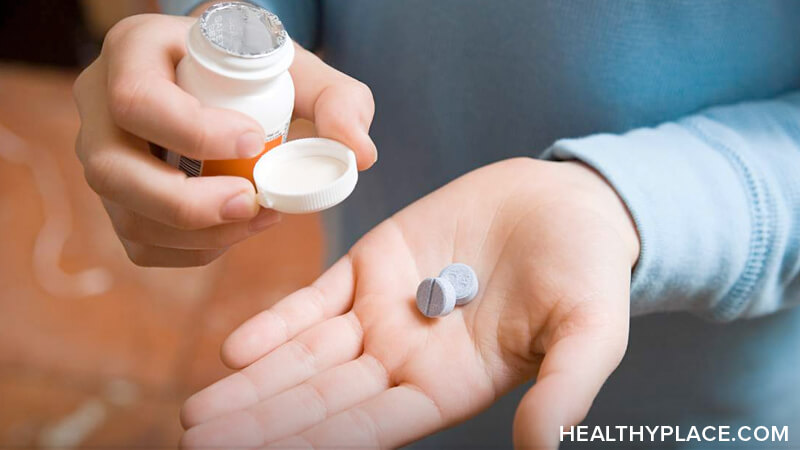ADHD Drugs and How ADHD Drug Treatment Helps ADHD Adults

The same ADHD drugs commonly used to treat childhood ADHD work just as effectively in adults with the disorder. ADHD drug treatment addresses a deficiency in two important chemicals, dopamine and norepinephrine, found in the brains of those with ADHD. The stimulant medications, found highly effective in treating adults and children, balances the levels of dopamine and norepinephrine in the brain.
ADHD Drugs Available for Treatment of Adult ADHD
ADHD drug treatment options come in a variety of strengths and formulations, including time release, slow release, capsules, caplets, and medicine-delivery patches. Stimulant ADHD drugs include methylphenidate, dextroamphetamine and amphetamine salts. These ADD drugs are FDA approved for use in children. While most have not been FDA approved for use in the treatment of adult ADHD, physicians do prescribe these ADHD drugs off-label to adult patients. (see Finding Adult ADHD Doctors Who Know How to Treat Adult ADHD)
Stimulant Class ADD Drugs by Brand Name:
The only non-stimulant ADHD drug treatment available to treat adult ADHD is Strattera.
Stimulant vs. Non-Stimulant ADD Drugs
The Pros and Cons of Stimulant ADD Drug Treatments
Multiple studies have shown stimulant medications as the most effective pharmacological treatments for both adult and childhood ADD. Research shows that two-thirds of adults treated with stimulant ADD drugs have a significant reduction of ADD symptoms. The stimulant agents in these medications cause levels of norepinephrine and dopamine to rise in the brain. Experts believe that the normal levels of these neurotransmitters in the frontal cortex result in the increased attention and concentration ability.
Stimulant ADD drug treatment has the potential to cause hypertension in patients, particularly in adults. Doctors must monitor patients with high blood pressure very closely when initiating treatment with stimulant medications. Patients beginning a course of stimulant ADD drug treatment frequently complain about sleep disturbances and insomnia. Although this usually subsides after taking the medication for a couple of weeks, sometimes it does not. Since stimulant-based ADHD drugs are classified as C-II controlled substances, physicians should carefully consider the high potential for abuse when prescribing them to patients with a history of drug or alcohol abuse.
(Interested in adult ADHD natural treatment?)
The Pros and Cons of Non-Stimulant ADHD Drug Treatment
Atomoxetine, sold under the brand name Strattera, is the single non-stimulant ADHD drug treatment available in the U.S. Research indicates that patients can safely take the drug over long periods of time with minimal side effects. While it is effective, studies show it to have considerably less success in reducing adult ADD symptoms than stimulant drugs. Typically, patients must take non-stimulant ADD drugs for up to four weeks before noticing a significant improvement of symptoms. According to a study published in the 2008 issue of the Journal of Attention Disorders, a group of about 400 adults experienced an over 30 percent decrease in ADHD-related symptoms while taking Strattera for four years.
Straterra affects the levels of norepinephrine in the brain, bringing them up to normal levels; whereas, stimulant drugs affect levels of both dopamine and norepinephrine. The FDA does not classify Straterra as a controlled substance since the drug has a much lower potential for abuse. Still, Strattera can result in rare, but dangerous, side effects. The label warns of increased suicide risk in children and possible sexual and urinary issues for adults.
Adults who have a history of substance abuse, or who do not respond well to stimulant treatments, may consider trying a non-stimulant ADHD drug treatment, such as Strattera. Patients can obtain refills for the drug over the phone, making it far more convenient than the controlled class of stimulant drugs. Adults with no substance abuse history and who desire fast-acting relief should talk to a health care professional about starting on stimulant ADHD drugs.
APA Reference
Gluck, S.
(2021, December 20). ADHD Drugs and How ADHD Drug Treatment Helps ADHD Adults, HealthyPlace. Retrieved
on 2026, February 4 from https://www.healthyplace.com/adhd/adhd-adults/adhd-drugs-and-how-adhd-drug-treatment-helps-adhd-adults



